Indigenous Governance Database
Desi Rodriguez Lonebear
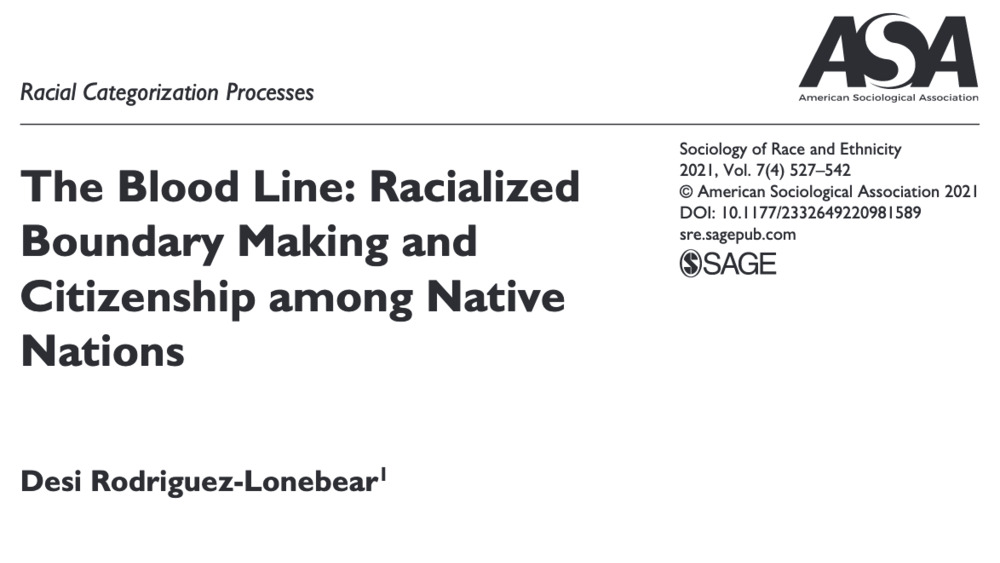
The Blood Line: Racialized Boundary Making and Citizenship among Native Nations
Blood informs a central racial ideology in the United States that has historically been used to racialize many different groups. American Indians (AIs) are the only population in the United States for whom the racial logic of blood remains codified as a means of conferring collective belonging.…
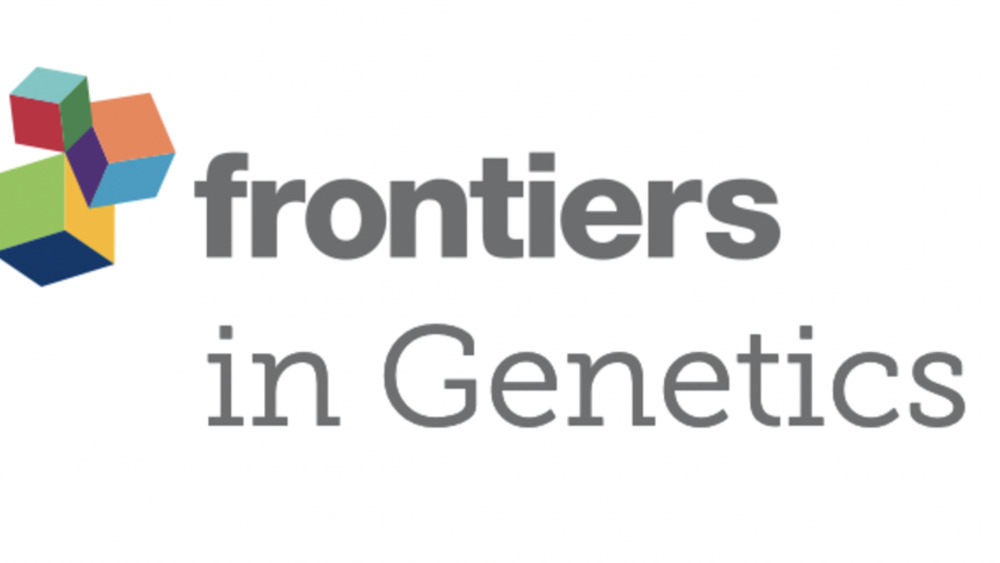
Using Indigenous Standards to Implement the CARE Principles: Setting Expectations through Tribal Research Codes
Biomedical data are now organized in large-scale databases allowing researchers worldwide to access and utilize the data for new projects. As new technologies generate even larger amounts of data, data governance and data management are becoming pressing challenges. The FAIR principles (Findable,…
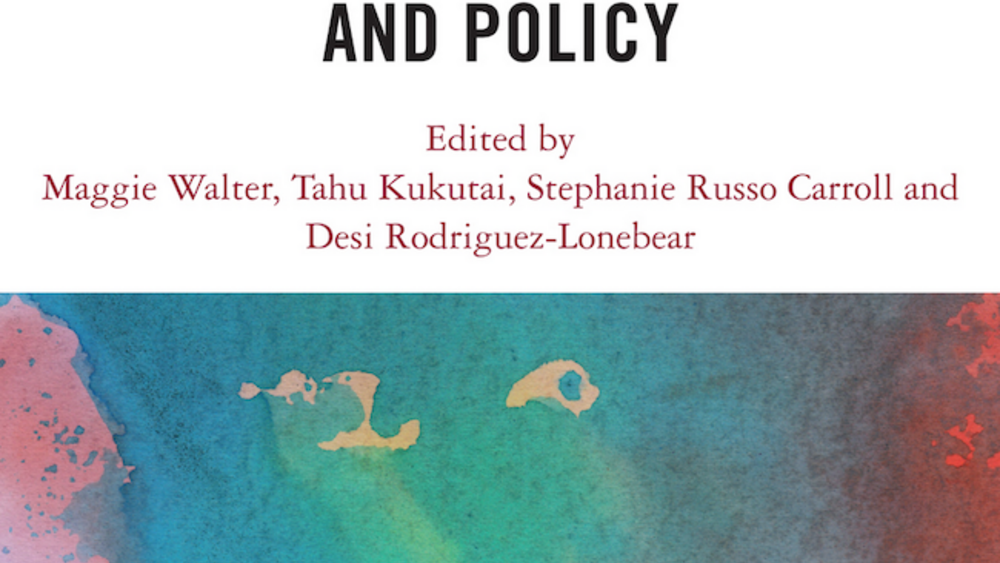
Indigenous Data Sovereignty and Policy
This book examines how Indigenous Peoples around the world are demanding greater data sovereignty, and challenging the ways in which governments have historically used Indigenous data to develop policies and programs. In the digital age, governments are increasingly dependent on data and data…
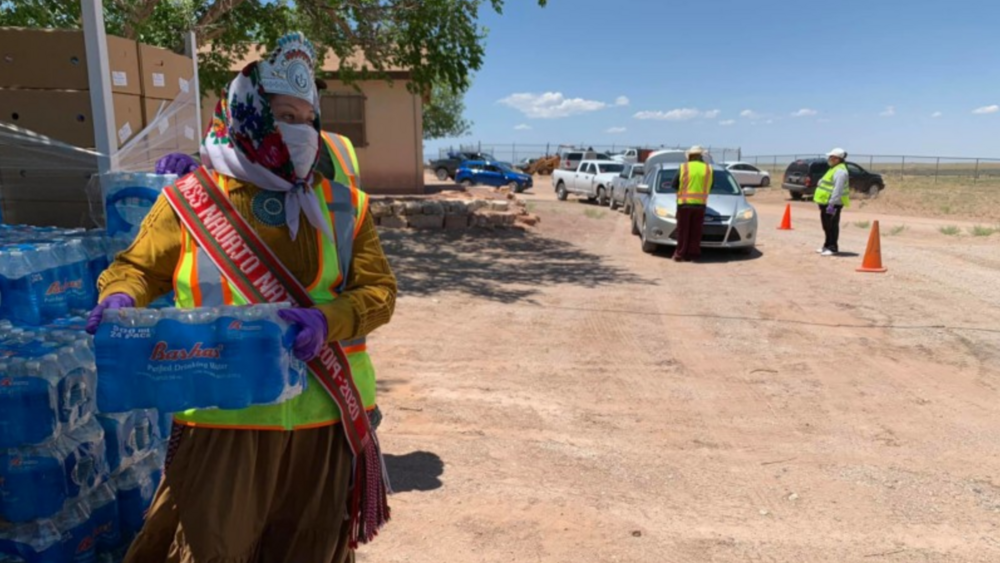
Indigenous Data in the Covid-19 Pandemic: Straddling Erasure, Terrorism, and Sovereignty
On April 10, 2020, Covid-19 case rates on tribal lands were more than four times the rate in the United States.1 Indigenous Peoples across the country continue to be disproportionately impacted by the coronavirus. As of May 18, 2020, the Navajo Nation has the highest Covid-19 case rates surpassing…
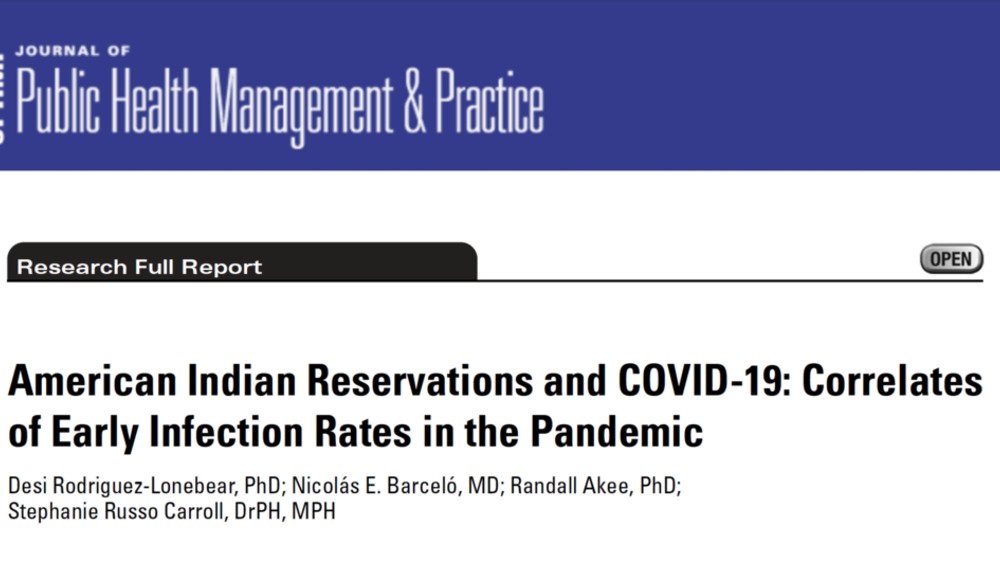
American Indian Reservations and COVID-19 Correlates of Early Infection Rates in the Pandemic
Objective: To determine the household and community characteristics most closely associated with variation in COVID-19 incidence on American Indian reservations in the lower 48 states. Design: Multivariate analysis with population weights. Setting: Two hundred eighty-seven American Indian…
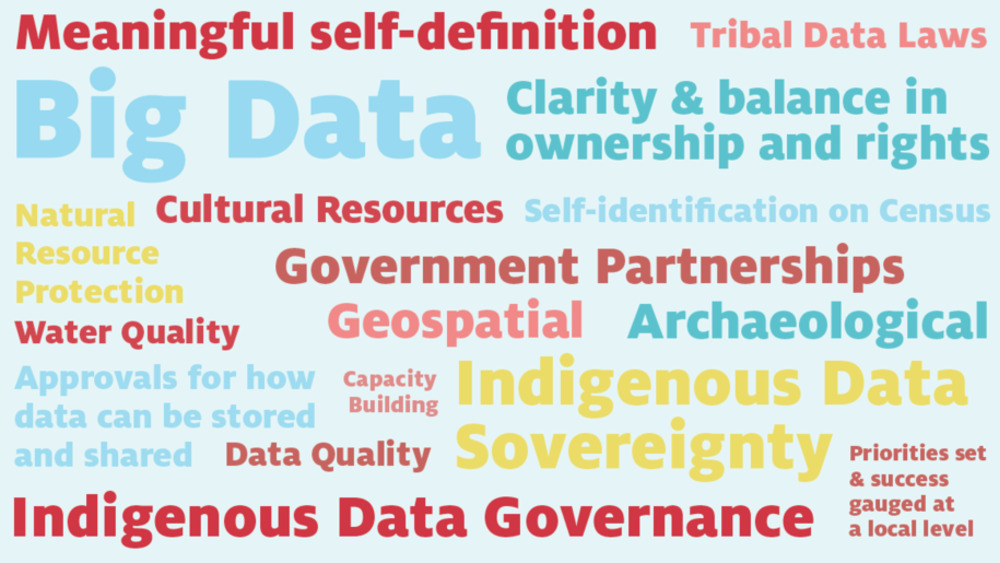
Principles of Indigenous Data Governance
Indigenous data, whether collected by national governments and institutions or gathered by Indigenous Peoples themselves, are integral for: decision-making; the exercise of collective rights to self-determination; the affirmation and application of Indigenous epistemologies; and fulfilling…
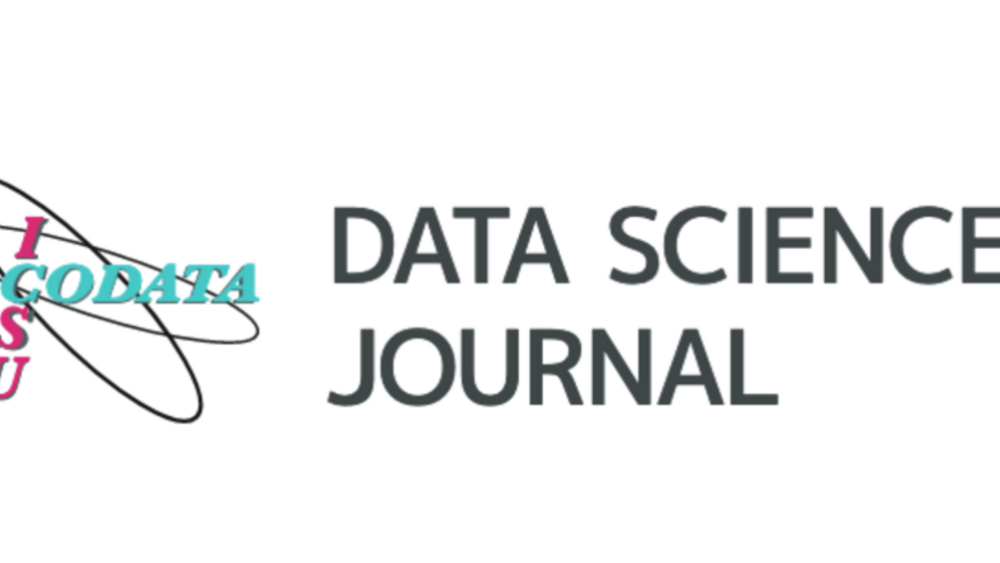
Indigenous Data Governance: Strategies from United States Native Nations
Data have become the new global currency, and a powerful force in making decisions and wielding power. As the world engages with open data, big data reuse, and data linkage, what do data-driven futures look like for communities plagued by data inequities? Indigenous data stakeholders and non-…
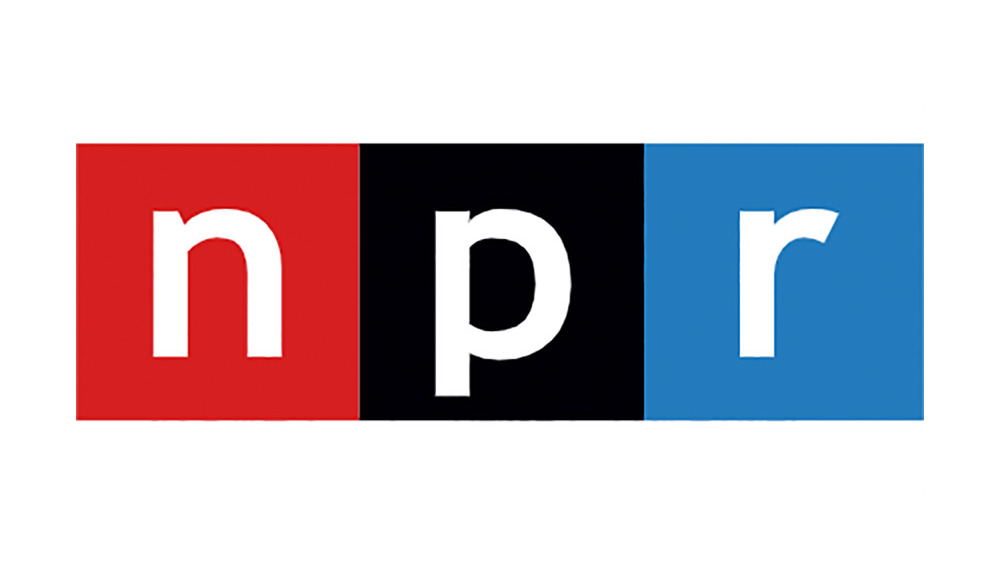
What Makes Someone American Indian?
Who is Native American? It's a complicated question that has tripped up, among others, Massachusetts Senator Elizabeth Warren. The Democratic presidential hopeful recently apologized for identifying American Indian as her race more than 30 years ago. It was around that time that the U.S. census saw…
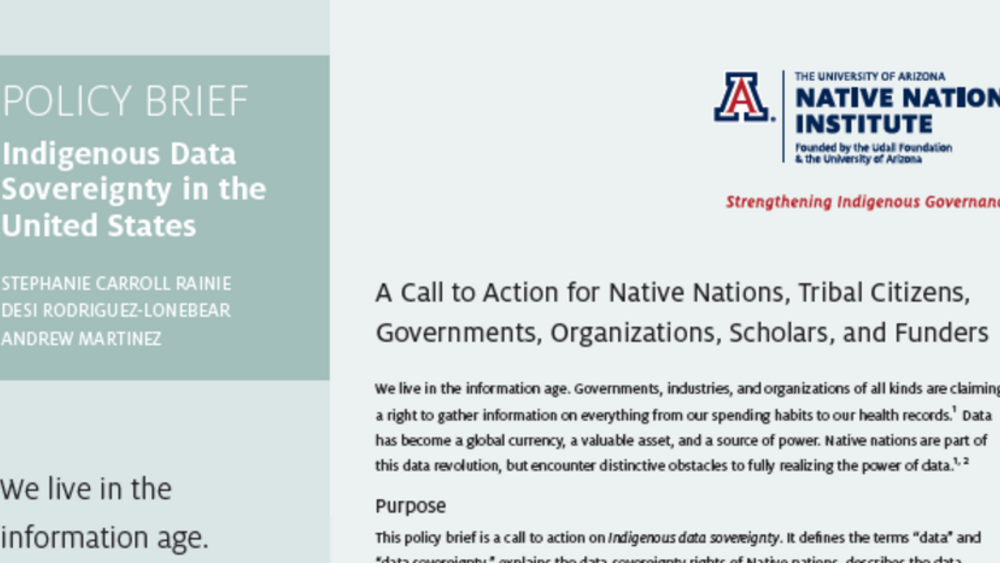
Policy Brief: Indigenous Data Sovereignty in the United States
We live in the information age. Governments, industries, and organizations of all kinds are claiming a right to gather information on everything from our spending habits to our health records. Data has become a global currency, a valuable asset, and a source of power. Native nations are part…
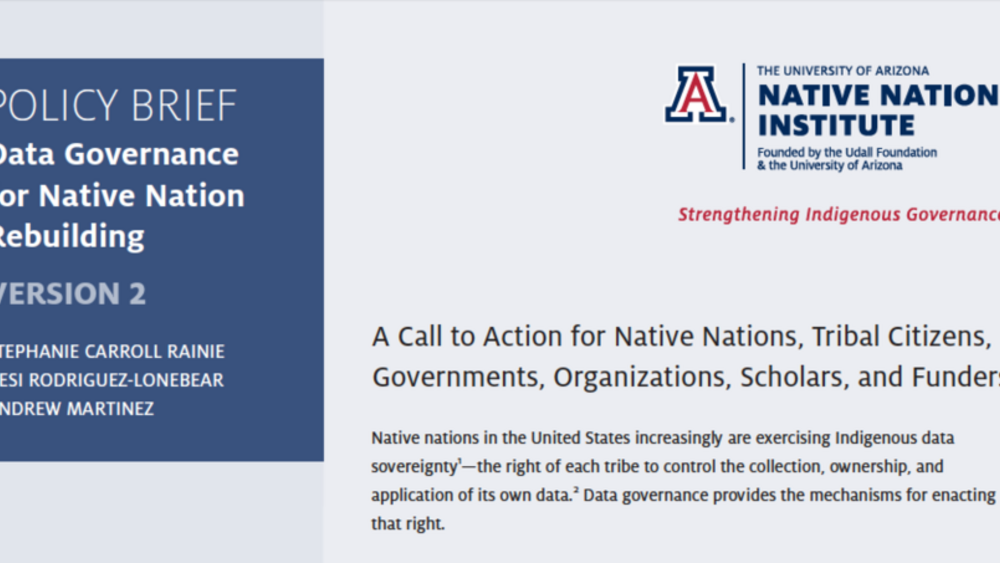
Policy Brief: Data Governance for Native Nation Rebuilding
Native nations in the United States are increasingly exercising Indigenous data sovereignty (ID-Sov)— the right of a nation to govern the collection, ownership, and application of its own data. While ID-Sov is the goal, data governance— the ownership, collection, control,…
